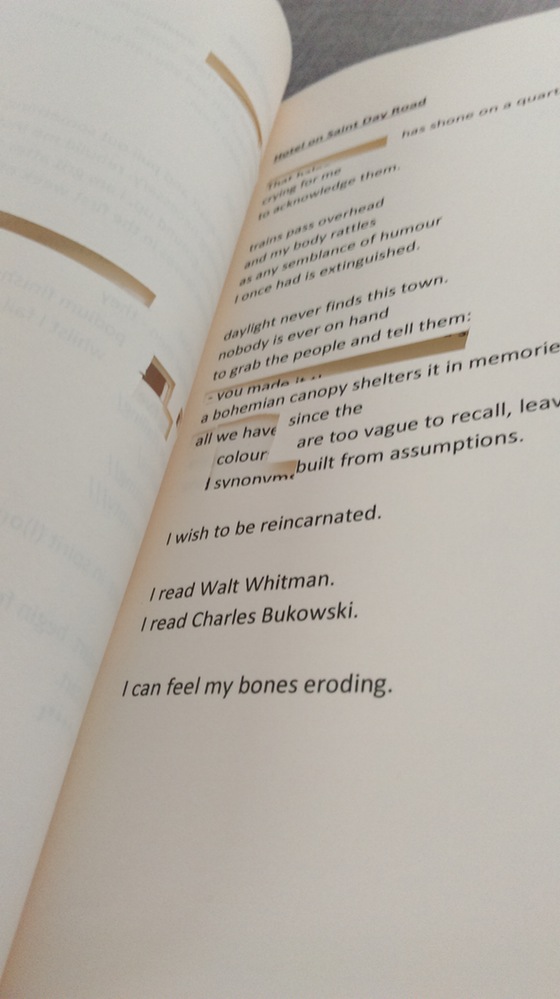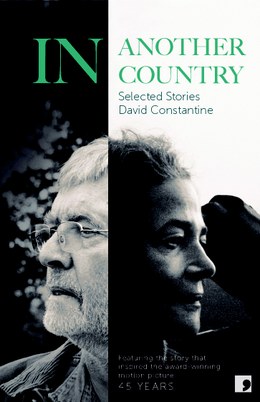Nest Fallen & Sinking Ship #1 by Aaron Kent
– Reviewed by Frank Lawton –
Nest Fallen – Aaron Kent
Sinking Ship #1– Aaron Kent
Aaron Kent has spoken of how his poems have ‘been known to make people cry – I had 15 people in tears at one gig’. I wouldn’t say they’re all quite that bad, but some in Nest Fallen come pretty close. Many of the problems with the poems in Nest Fallen can be attributed to the fact they are printed, ready for close inspection. There is a problem of place, since many of the poems appear to have been written primarily for performance poetry gigs and then printed without consideration for what might be lost in that process. When these poems are performed, the bounce of the rhythm and a speedy delivery will drag the listener over some of the cracks in the lines. When this force is removed, when the poem is pulled out of the air and fastened down for close attention, the cracks can become gaping holes. Rather than being dragged over, we are dragged right into them.
This is clearly illustrated by ‘Learn to Fly, Dare to Swim’, a laboured list poem of “I want[‘s]” which challenges the reader to finish it, and fails to reward them if they do. The anaphoric “I want” construction affords Kent the opportunity to portray the late-modern “want” ego, located in a consumer society predicated upon the creation of relentless, unlimited desire. This is briefly hinted at but passed up in favour of banalities without incision, humour or elevation. The final two lines in particular make for perplexing reading:
I want a natural ending to this piece, on the ending everything rests,
I want to finish by completing a want, screw it, here’s the vest.
This only begins to make sense when we go online and find that at poetry performances this ending is accompanied by Kent removing his sweater in a flourish to reveal his vest. While this might be a pleasing gimmick on stage, when the poem is transferred to the page without any adjustment the lines simply fall flat and befuddled, an anti-climax to an anti-climax. ‘Grace & Other Virtue’, a long narrative poem about cancer and its effect upon a small family, poses an even greater challenge to the reader’s patience. The poem is riddled with unredeemed cliché (a kiss is “over in a flash”; cancer “reared it’s [sic] ugly head”) and cloying substitutions, such as when Grace
[…] returns home one night,
to see him holding back tears,
upon those salty drops he chokes.
The odd idiom and substitution of “salty drops” for tears would be almost comic if it weren’t for the subject matter, the gravity of which is repeatedly reached for and repeatedly missed. We see this in the forced nature of some of the rhymes, such as
knowing its [sic] useless as he’ll be around a while
to listen with her to every word,
as he beats this disease,
to lose is absurd.
Absurd, perhaps, but not as absurd as the trite rhyme, which turns what might be meant as a heartfelt show of strength into a ghastly sort of comedy. This is at its acutest in the unashamedly melodramatic passage where the pregnant Grace sees her husband die:
Grace makes it in time to see his heart pump one last pump,
she almost collapses but the doctors catch her, just slumped,
and here she realises its [sic] not just seven more months,
but a lifetime she has with his child.
Rather than moving me to tears, this moved me to ask whether Grace had thought a child was just for Christmas. Presumably she had, seeing as it’s just “here”, at this moment of her husband’s death, that she “realises”, so a moment evidently intended to tug at the heart-strings collapses bathetically into what by this point is bordering on self-parody.
Sinking Ship #1 is a work more attuned to the pressures of the page and reads as a more coherently conceived printed collection. As the blurb describes, the pamphlet ‘contains various holes throughout it, enabling readers to see the repetition of a singular word from the final poem throughout’. The poems are thus textually interlaced, certain words echoing throughout, the poems in conversation with one another. The text is a mixture of ‘halogen moon[s]’, self-pity, spirits (both kinds), love, a lot of crying and an attempted twinning of Beat and Internet poetry traditions. There are some good moments, and it is without doubt the stronger of the two pamphlets. For example in ‘Correspondence’ we hear of how
I’ve wasted most tears when I manage
to confuse the scent of discarded cigarettes
with a general yearning for acceptance.
In “manage” we hear the “I’s” own “yearning”, a conscious act rather than the passivity of “confusion”, and in such an act of “manag[ing]”, personal confusion is re-written as desire, a wilful yet communal mistake. This is a delicate moment. Unfortunately it is all the more delicate for its rarity.





